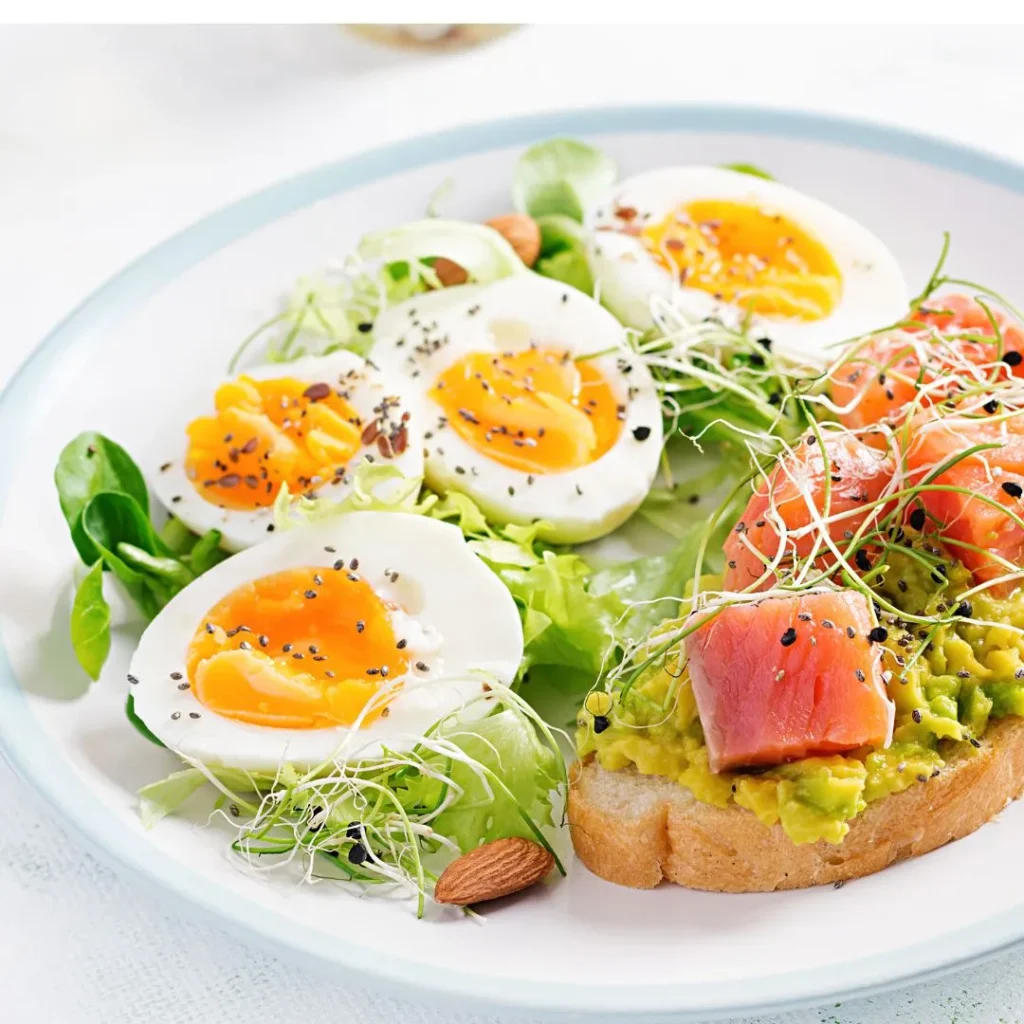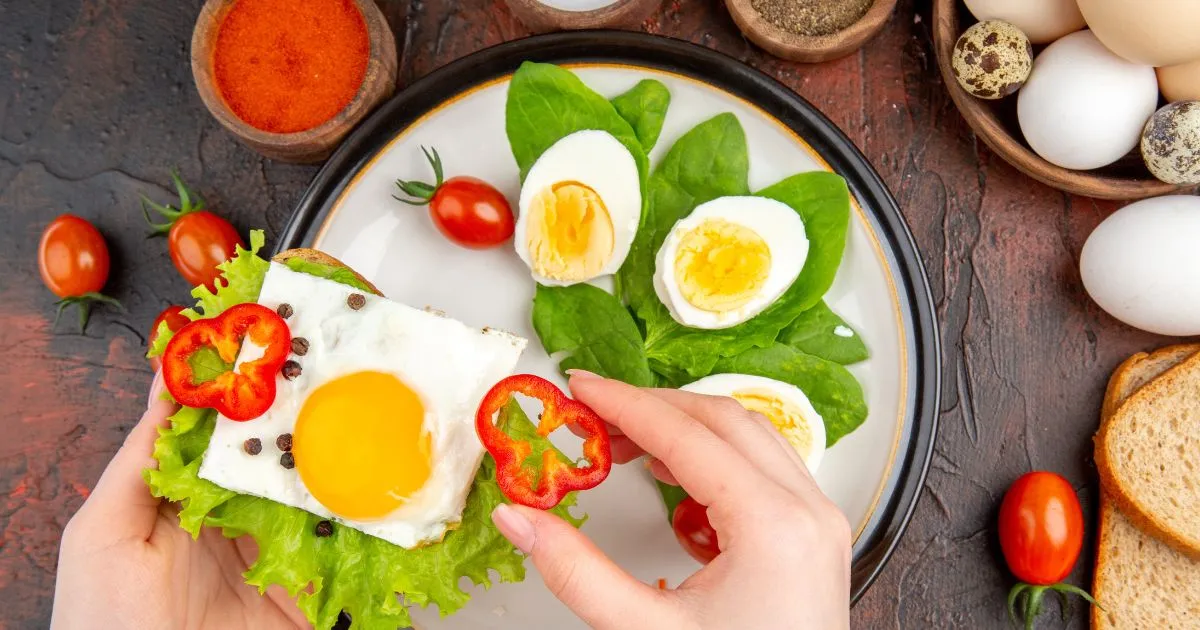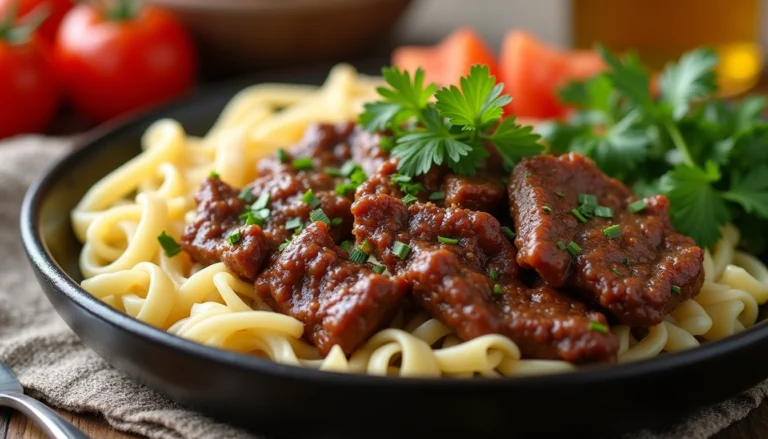Healthy Eggs: Recipes and Tips
There’s a certain warmth that comes with the sizzle of eggs in a pan. You might recall your childhood breakfast, your quick post-gym meal, or a comforting dinner after a long day. Eggs are always there — simple, affordable, and incredibly nourishing. But are you making the most of them in your diet?
Whether you’re trying to eat cleaner, lose weight, build muscle, or just add more flavor to your meals without sacrificing nutrition, healthy eggs can become your go-to ingredient. In this guide, you’ll find everything you need to know — from choosing the right type of eggs, cooking them properly, trying out exciting recipes, and storing them safely.
Let’s break the shell on all things healthy eggs.
Table of Contents
Why Healthy Eggs Should Be a Staple in Your Diet
The Nutritional Power of Eggs
Each egg is a compact bundle of nutrition. You’re getting:
- About 6 grams of high-quality protein
- Just 70-80 calories
- Vitamins: B2 (riboflavin), B12, D, A
- Minerals: Iron, Selenium, Zinc
- Choline, crucial for brain health and development
- Healthy fats that support hormone function
That’s a nutritional powerhouse packed into a single shell. And the best part? They’re incredibly versatile and easy to cook.
What About Cholesterol?
You’ve probably heard the warning: “Don’t eat too many eggs — they raise cholesterol!” Here’s the truth: Yes, eggs do contain cholesterol. But research from Harvard and the Mayo Clinic shows that dietary cholesterol doesn’t impact your blood cholesterol as much as once believed.
What affects your health more is saturated fat and trans fats, not cholesterol from whole foods like eggs.
So unless your doctor says otherwise, having one to two eggs a day is perfectly safe — and beneficial.
Choosing the Right Eggs for Maximum Health Benefits

Cage-Free, Organic, Free-Range — What Do They Mean?
Egg cartons can be confusing. You’ve probably seen terms like:
- Cage-Free: Hens are not kept in cages but may still be indoors.
- Free-Range: Hens have some outdoor access.
- Pasture-Raised: Hens roam freely and eat a more natural diet (more nutritious eggs).
- Organic: Fed organic feed, no antibiotics or GMOs.
The best choice for both health and ethics? Pasture-raised, organic eggs. They often contain twice the omega-3s and more vitamin D than conventional ones.
How to Decode Egg Carton Labels
When buying eggs, look for:
- USDA Organic
- Certified Humane
- Non-GMO
- Omega-3 enriched
- Date codes (Julian dates): Always choose the freshest option.
These clues help you get the most nutrition from your eggs.
Healthy Eggs Cooking Tips for Every Lifestyle
The Best Cooking Methods for Health
Not all egg cooking styles are created equal. Some add unnecessary calories or damage delicate nutrients. Here’s what you should aim for:
- Boiled (soft or hard): No added fat, all nutrients intact.
- Poached: Gentle on proteins, retains healthy fats.
- Steamed: Light and fluffy, great for digestion.
- Scrambled with minimal oil: Use olive oil or avocado oil.
Cooking Mistakes That Turn Eggs Unhealthy
If you’re loading your eggs with butter, processed meats, and heavy cheese — you’re missing the point. Avoid:
- Over-frying with butter or margarine
- Overcooking (it reduces antioxidant levels)
- Dousing with salt or sugar (in custards or desserts)
Use herbs and spices instead — more flavor, fewer calories.
Make Eggs Fit Your Diet Plan
Depending on your health goals, adjust your egg intake like this:
- For Weight Loss: Use boiled eggs with leafy greens or in wraps.
- For Keto: Combine with avocado, cheese, and healthy fats.
- For High Protein: Add 2–3 eggs to a veggie stir-fry or smoothie bowl (yes, raw pasteurized whites work too).
5 Healthy Egg Recipes You Can Make Today
These recipes are quick, delicious, and packed with nutrition.
| Recipe | Ingredients | Instructions | Calories |
|---|---|---|---|
| Avocado Egg Toast | 1 whole grain toast, 1 poached egg, ½ avocado | Toast bread, mash avocado, top with poached egg, season | 320 |
| Veggie Omelet | 2 eggs, spinach, mushrooms, bell peppers | Sauté veggies, add beaten eggs, cook on low heat | 280 |
| Greek Yogurt Egg Salad | 3 boiled eggs, 2 tbsp Greek yogurt, mustard, dill | Mix all, serve chilled in lettuce wraps | 250 |
| Egg Muffins | Eggs, diced veggies, feta cheese | Mix, pour into muffin tray, bake at 180°C for 20 mins | 150 |
| Shakshuka | Eggs, tomatoes, garlic, onion, olive oil, cumin | Simmer sauce, add eggs, cook until just set | 220 |
You can batch-cook many of these and keep them for 2–3 days in the fridge.
How to Store and Handle Eggs Safely
Proper Storage = Maximum Freshness
Eggs are delicate. Handle them right:
- Store in the coldest part of your fridge (not the door)
- Keep at below 4°C (40°F)
- Use within 3–5 weeks from purchase
How to Tell If an Egg Is Bad
Don’t risk it. Use these tricks:
- Smell test: A sulfur smell = toss it.
- Float test: Place in a bowl of water. If it floats, it’s old.
- Crack and check: Cloudy whites are fine; green or pink? No.
Eggs for Specific Dietary Needs
Can Eggs Help With Weight Loss?
Absolutely. Eggs are filling, high in protein, and low in calories. Studies show that eating eggs for breakfast can reduce overall calorie intake throughout the day by up to 400 calories.
Try this: two boiled eggs with a side of spinach and a slice of rye toast — it’ll keep you full for hours.
Are Eggs Safe for Diabetics?
Yes — in moderation. According to the American Diabetes Association, up to 6–12 eggs a week is safe for most diabetics, especially when paired with vegetables or whole grains.
Avoid pairing eggs with bacon, sausage, or white bread — those spike blood sugar and contribute to heart risks.
Egg Substitutes for Allergies or Vegan Diets
If you can’t eat eggs:
- Use tofu scrambles (firm tofu + turmeric + black salt)
- Try chickpea flour pancakes with spices
- Use chia/flaxseed eggs for baking (1 tbsp seed + 2.5 tbsp water)
Expert Tips for Making Eggs More Exciting and Healthy
Healthy Add-Ins That Boost Flavor and Nutrition
You can make eggs taste amazing without unhealthy extras:
- Herbs: Dill, chives, parsley, thyme
- Spices: Paprika, cumin, turmeric, black pepper
- Veggies: Kale, mushrooms, bell peppers, zucchini
Not only do they add flavor, but they also bring antioxidants, fiber, and texture.
Kitchen Tools That Make a Difference
Don’t underestimate tools. They can save you time and calories.
- Non-stick pans: Use less oil
- Silicone molds: Great for egg muffins
- Poachers: Perfect soft eggs without oil
- Electric egg cooker: Foolproof hard-boiling
Make cooking eggs easier — you’ll eat them more often.
Frequently Asked Questions About Healthy Eggs
Q: Are egg noodles healthy?
Egg noodles can be part of a healthy diet when eaten in moderation. They’re higher in protein than regular noodles, but also contain more cholesterol. Pair them with vegetables and lean proteins for a balanced meal.
Q: Are scrambled eggs a healthy breakfast?
Yes, scrambled eggs are a healthy breakfast option. They’re rich in protein, vitamins, and healthy fats. For best results, cook them with minimal oil or butter.
Q: Is scrambled egg on toast healthy?
Absolutely. Scrambled eggs on whole grain toast make a nutritious and filling breakfast, offering a good balance of protein, fiber, and healthy fats.
Q: Is steak and eggs healthy?
Steak and eggs can be healthy in moderation. They provide high-quality protein and iron, but it’s important to watch portion sizes and choose lean cuts of meat.
Q: Is egg healthy for your hair?
Yes, eggs are rich in biotin, protein, and other nutrients that support healthy hair growth. They can be eaten or applied as a hair mask.
Conclusion: Start Making Healthy Eggs a Daily Habit
You don’t need fancy ingredients or complicated meals to eat better. Sometimes, all it takes is a simple egg. Whether you’re boiling them for a snack, scrambling them with greens, or baking them into muffins for the week — eggs can be the foundation of a healthier, more energizing lifestyle.







